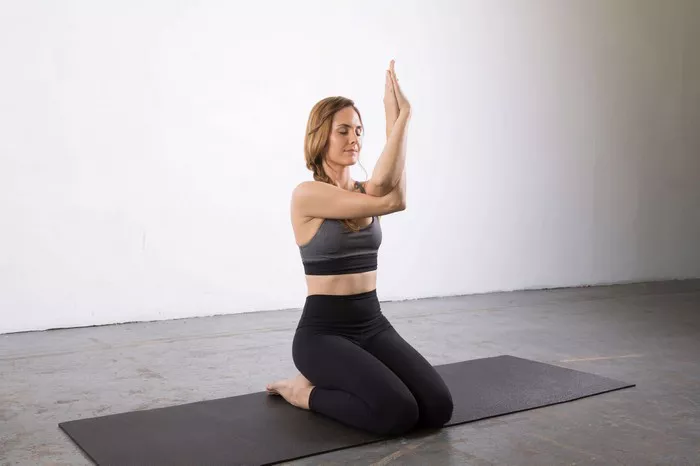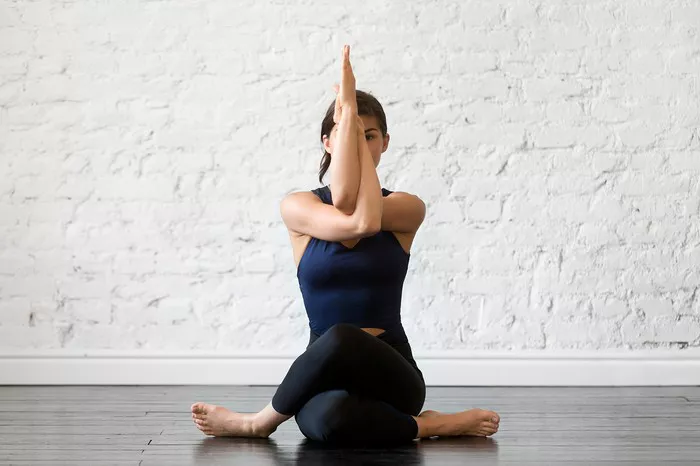Yoga, as a practice, has evolved over thousands of years, merging various philosophies, techniques, and styles to offer a holistic approach to wellness. Among the many types of yoga, Zen Yoga stands out for its unique blend of ancient spiritual traditions and modern mindfulness practices. But what exactly is Zen Yoga, and how does it differ from other forms of yoga? In this article, we will explore the origins, principles, practices, and benefits of Zen Yoga to provide a comprehensive understanding of this meditative and therapeutic yoga style.
Understanding Zen Yoga: A Fusion of Zen and Yoga
Zen Yoga is a fusion of two distinct traditions: Zen Buddhism and classical yoga. While both share some similarities in their approach to mindfulness, meditation, and awareness, they originate from different cultures and philosophies. Zen Yoga combines the spiritual depth of Zen Buddhism with the physical and mental practices of yoga, offering a harmonious integration of mind, body, and spirit.
Zen Buddhism: A Brief Overview
Zen Buddhism, or simply Zen, is a school of Mahayana Buddhism that emphasizes direct experience, meditation, and the cultivation of mindfulness. The term “Zen” comes from the Japanese pronunciation of the Chinese word Chan, which itself originates from the Sanskrit word dhyana, meaning “meditation.” Unlike other forms of Buddhism, which focus heavily on scriptures and rituals, Zen practitioners prioritize meditation as the primary path to enlightenment. The essence of Zen lies in being present in each moment, cultivating inner peace, and transcending the ego.
Zen meditation, or zazen, is a central practice in Zen Buddhism. It involves sitting in a specific posture, focusing on the breath, and allowing thoughts to arise and dissipate naturally without attachment. The ultimate goal of Zen meditation is to experience “satori,” or sudden enlightenment, which is said to occur when one transcends the duality of the self and the universe.
Yoga: A Holistic System of Wellness
Yoga, on the other hand, is an ancient Indian discipline that dates back over 5,000 years. It encompasses a broad range of practices aimed at promoting physical, mental, and spiritual well-being. The word “yoga” itself means “union,” referring to the union of the individual self with the universal consciousness or divine. Classical yoga, as outlined in the Yoga Sutras of Patanjali, includes eight limbs, or steps, that guide practitioners toward self-realization and liberation (moksha). These limbs include ethical precepts (yamas and niyamas), physical postures (asanas), breath control (pranayama), withdrawal of the senses (pratyahara), concentration (dharana), meditation (dhyana), and ultimate enlightenment (samadhi).
While yoga is commonly associated with physical postures, or asanas, its true essence lies in the cultivation of mindfulness, awareness, and inner peace through the integration of body, mind, and spirit.
The Birth of Zen Yoga
Zen Yoga emerged as a modern practice that synthesizes the principles of Zen Buddhism with the physical techniques and mindfulness aspects of traditional yoga. This unique blend aims to provide practitioners with a holistic approach to self-awareness, healing, and spiritual growth. The practice of Zen Yoga can be seen as a bridge between Eastern philosophies, integrating the calmness and simplicity of Zen meditation with the body-centered practices of yoga.
Zen Yoga is not simply about performing physical postures but about experiencing a deeper sense of connection with the body, mind, and spirit. Through the mindful practice of asanas, meditation, and breathwork, Zen Yoga helps practitioners achieve a state of inner stillness, presence, and clarity. It encourages participants to cultivate a heightened sense of awareness in each moment, fostering a sense of calm, balance, and tranquility.
The Core Principles of Zen Yoga
Zen Yoga, like its constituent traditions, is built on certain core principles that guide practitioners toward greater self-awareness and spiritual growth. These principles are:
1. Mindfulness and Presence
Mindfulness, or being fully present in the moment, is at the heart of Zen Yoga. Unlike other forms of yoga that may focus more on the physical aspects of postures or sequences, Zen Yoga emphasizes cultivating awareness in each breath, movement, and sensation. The practice encourages individuals to be aware of their thoughts, emotions, and physical sensations without judgment or attachment. This mindfulness creates a deep connection to the present moment and allows practitioners to let go of distractions, stress, and mental clutter.
2. Stillness and Calmness
Zen Yoga encourages practitioners to experience stillness in both body and mind. Through meditation and mindful breathing, practitioners are taught to quiet the mental chatter and distractions that often arise during physical practice. The goal is to cultivate a state of inner calmness and tranquility that transcends the busy-ness of daily life.
3. Non-Attachment
One of the central tenets of Zen and yoga is the practice of non-attachment. In Zen Yoga, this means letting go of the need to control, achieve, or force outcomes. Practitioners are encouraged to surrender to the present moment, accepting whatever arises during practice without judgment or attachment. This non-attachment extends beyond the yoga mat, helping individuals develop a more peaceful and accepting attitude toward life in general.
4. Breath and Awareness
Breath is a central element in both Zen meditation and yoga practice. In Zen Yoga, breath is used as a tool for grounding and centering the practitioner. Breath awareness helps to bring the mind into the present moment and encourages a state of deep relaxation. Through conscious breathing, practitioners can release tension and invite a sense of ease and openness.
5. Simplicity
Simplicity is a key principle in Zen Yoga. This concept is drawn from the Zen philosophy of “less is more,” which emphasizes the beauty of simplicity and the importance of eliminating unnecessary distractions. Zen Yoga practices are often characterized by slow, deliberate movements, with an emphasis on quality over quantity. The simplicity of the practice allows practitioners to focus more deeply on their inner experience and cultivate a sense of calm and clarity.
6. Self-Discovery and Spiritual Growth
Ultimately, Zen Yoga is a path to self-discovery and spiritual growth. It encourages practitioners to explore their inner landscape and connect with their higher selves. Through mindfulness, meditation, and the cultivation of awareness, Zen Yoga helps individuals tap into a deeper sense of purpose, clarity, and spiritual insight.
Zen Yoga Practices
The practice of Zen Yoga typically involves a combination of physical postures (asanas), meditation, breathwork, and mindful awareness. The sequence of movements in Zen Yoga may be slow and deliberate, emphasizing breath synchronization with each posture. Below are some key practices involved in Zen Yoga:
1. Zen Meditation (Zazen)
Zen meditation, or zazen, is the cornerstone of Zen Yoga. This seated meditation practice involves sitting in a comfortable yet alert posture, focusing on the breath, and observing the flow of thoughts and sensations without attachment. The primary goal of zazen is to cultivate mindfulness and awareness, allowing the practitioner to experience stillness and presence in each moment.
2. Breath Awareness (Pranayama)
Breath control, or pranayama, is a fundamental practice in both Zen Yoga and classical yoga. Pranayama techniques help regulate the flow of prana (life force energy) through the body, fostering relaxation, mental clarity, and emotional balance. Common breath practices in Zen Yoga include deep belly breathing, alternate nostril breathing, and the slow, rhythmic breathing associated with meditation.
3. Gentle Asanas
Zen Yoga incorporates gentle, flowing asanas (yoga poses) that promote flexibility, strength, and balance. The physical postures are typically performed in a slow, mindful manner, with an emphasis on alignment and body awareness. Unlike more vigorous forms of yoga, Zen Yoga encourages practitioners to move at their own pace, focusing on the quality of each movement rather than achieving specific physical goals.
4. Walking Meditation
In addition to seated meditation, Zen Yoga often includes walking meditation, or kinhin. This practice involves walking slowly and mindfully, paying attention to the sensation of each step and the rhythm of the breath. Walking meditation helps cultivate awareness and presence while encouraging the practitioner to remain grounded and focused.
5. Mindful Movement
Zen Yoga also emphasizes mindful movement, where each action is performed with complete attention and awareness. This can involve simple stretches, twists, or balancing postures, all executed with the intention of being present and attuned to the body’s sensations. Mindful movement can be incredibly grounding and provides a deep sense of connection to both the body and the present moment.
Benefits of Zen Yoga
Zen Yoga offers a wide range of benefits, both physically and mentally. By combining meditation and mindful movement, it provides a holistic approach to wellness that nurtures the mind, body, and spirit. Some of the key benefits of Zen Yoga include:
1. Stress Reduction
The practice of Zen Yoga helps activate the parasympathetic nervous system, promoting a relaxation response that counteracts the body’s stress response. Through breath awareness, meditation, and mindful movement, Zen Yoga helps lower levels of stress hormones like cortisol and promotes feelings of calm and well-being.
2. Enhanced Mental Clarity and Focus
Zen Yoga encourages practitioners to cultivate mindfulness and awareness, which leads to improved mental clarity and focus. By training the mind to remain present in each moment, Zen Yoga can help reduce mental distractions, increase concentration, and enhance cognitive function.
3. Emotional Healing and Balance
By promoting self-awareness and mindfulness, Zen Yoga can help individuals process and release emotional blockages. The practice encourages a non-judgmental attitude toward thoughts and feelings, which can lead to greater emotional resilience and inner peace.
4. Increased Flexibility and Strength
While Zen Yoga is not as physically demanding as some other forms of yoga, it still offers significant benefits for flexibility, strength, and overall physical health. The gentle, flowing movements in Zen Yoga promote the lengthening and stretching of muscles, improving flexibility over time. The practice also helps to build strength in the core, legs, and upper body.
5. Deep Spiritual Connection
For those seeking a spiritual practice, Zen Yoga offers a path to deeper self-awareness and connection to the divine. By integrating meditation, mindfulness, and gentle movement, Zen Yoga helps individuals tap into their inner wisdom and cultivate a deeper sense of purpose and meaning in life.
Conclusion
Zen Yoga is a unique and transformative practice that blends the meditative wisdom of Zen Buddhism with the physical and spiritual aspects of yoga. Through mindfulness, breath awareness, and gentle movement, Zen Yoga offers a holistic approach to well-being, promoting physical health, mental clarity, emotional balance, and spiritual growth. Whether you are new to yoga or an experienced practitioner, Zen Yoga provides a calming, grounding practice that can help you cultivate a deeper connection with yourself and the present moment. By embracing the principles of simplicity, stillness, and mindfulness, Zen Yoga invites you to experience a profound sense of inner peace and balance in every aspect of your life.
Related Topics:























